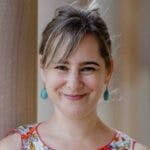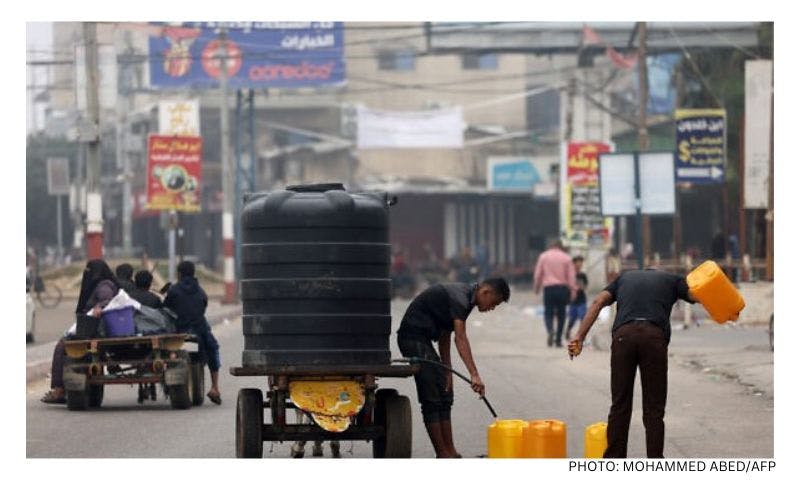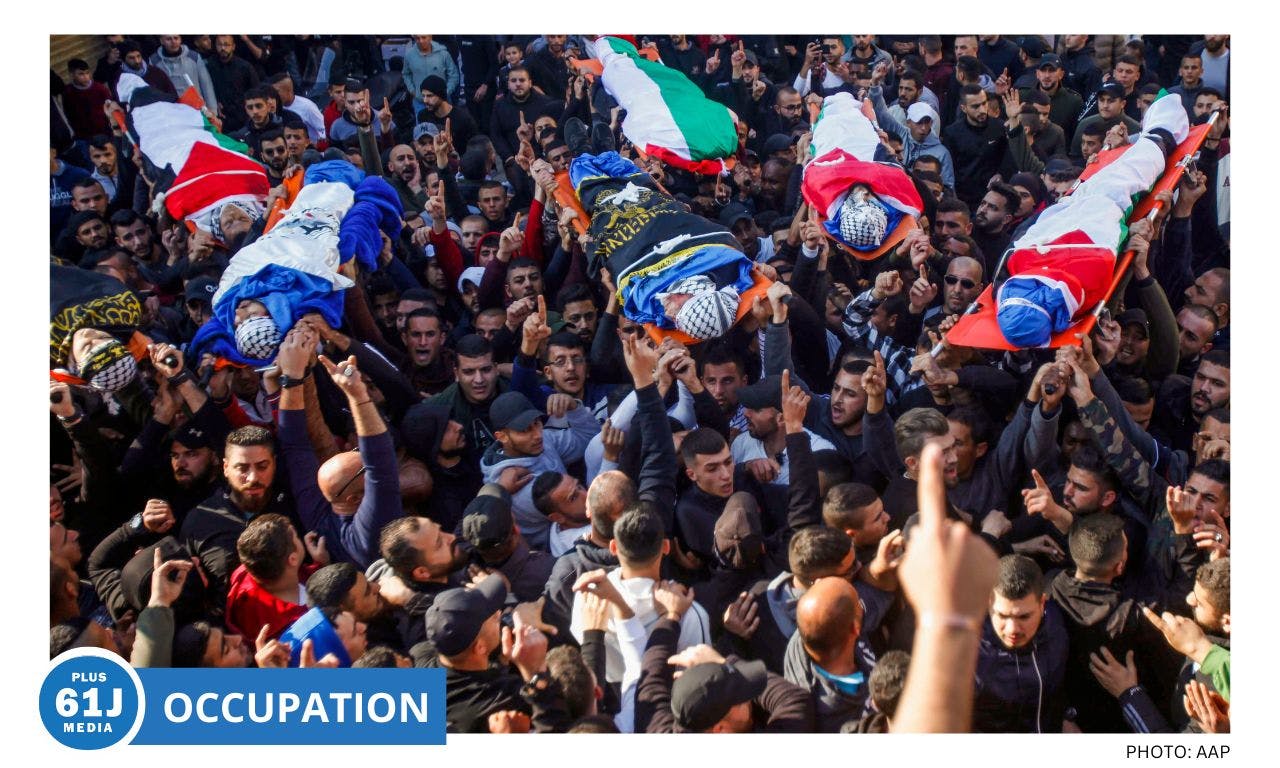Published: 21 November 2019
Last updated: 4 March 2024
“‘Siegfried!’ she called shrilly. ‘Gudrun! I told you, you were not to play with these children!’ She grabbed hold of the German girl and pulled her away. The boy followed, but when his mother was not looking, he made a funny face at Anna and waved his hand apologetically.”
Children are not born with prejudice or hatred. They are taught.
I reminded myself of this last week when a classmate of my 10-year-old daughter told her, “You can never trust a Jew.” Despite seeing hate speech regularly in my work, my stomach turned when she recounted his remark. My protective instincts kicked in; I was shocked. This had happened to my own child.
But the boy at my daughter’s school did not invent the trope of Jewish dishonesty and disloyalty, just as the German children in the book had not thought badly of Jews until they were instructed to. Children can be mean but targeting one another based on ethnicity or religion is a learnt behaviour, and one that is becoming more widespread and more dangerous for Jewish students in Australia.
My daughter’s encounter was a relatively minor case on the spectrum of antisemitism and the teacher responded with an immediate reprimand, making it clear that such comments would not be tolerated.
But my daughter should not be considered “lucky”. A childhood free from bigotry is the right of every child and the benchmark we should be aiming for. If we don’t work towards prevention and effective responses to early or minor cases, they can escalate.
Every time we laugh off a demeaning tweet by a leader or accept the spread of anti-Semitic conspiracy theories in social media, we allow the myths to proliferate. The rise of schoolyard anti-Semitism is the result of an environment that we, adults, are allowing to flourish.
Serious incidents of anti-Jewish bullying in Melbourne have been reported this year, including a 5 year old boy repeatedly taunted and called a “Jewish cockroach” and the physical bullying of a 12-year-old, culminating in him being forced to kiss the feet of another student. Further cases of Holocaust denial, Holocaust glorification and threats of violence will be detailed in the Executive Council of Australian Jewry’s 2019 report to be released later this month.
Comments like the one directed at my daughter can be perceived as an indicator of growing societal acceptance of anti-Jewish sentiment and a climate in which stereotypes are frequently invoked to create fear and distrust of certain groups. It is adults who bear responsibility for this – both in prevention and response.
It is easy for politicians to call for more Holocaust education in schools; they are less vocal when their colleagues fan the flames of ethnic and religious bias, dehumanise refugees or refer to particular groups using language loaded with historical prejudice. While in principle education programs may help reduce racist bullying, there is more going on here.
Every time we as a society laugh off a demeaning tweet by a leader, obfuscate inherent anti-Jewish symbolism in the press, or accept the spread of classic anti-Semitic conspiracy theories on social media, we allow the myths to proliferate. The rise of schoolyard anti-Semitism is the result of an environment that we, adults, are allowing to flourish.
In the sleepless nights that followed (for me, not for my daughter who was, thankfully, less fazed), I reflected on the incident in historical context. I thought about my grandparents and what they’d endured. I thought about my mother’s memory of a painted swastika outside her childhood home in Sydney’s eastern suburbs, and the swift action of her mother to transform it into a square until it could be removed.
I am especially conscious, after my daughter’s encounter, of having grown up during an unusual blip in time and place, where being Jewish was not a significant source of insecurity. My own childhood in Sydney was largely protected from antisemitism, at least the overt kind.
It was an era where the horrors of the Holocaust were transmitted via our grandparents’ insistence on a second helping of dinner or allusions to “the camps” but did not present a direct threat to us. We didn’t live with the stories of loss or heavy silences our Baby Boomer parents, the Second Generation, had.
When I was a school-aged child, Australia was a place where wars fought in the Middle East felt far away and Jewish Australians were not held personally accountable for them, or for Israeli government policies. The internet had not yet arrived with its barrage of hate speech and triple-bracketed names marking Jews for intimidation.
Now, Jews around the world are on alert again. Increasing hostility in Europe, as well as the UK and US where a culture of enabling antisemitism exists at the very highest levels, has reached Australia. Antisemitism can make us turn inwards, internalise the misconceptions.
It is critical to respond to instances of anti-Semitism at school, however minor they may seem.
In When Hitler Stole Pink Rabbit, Anna and Max’s father insists on the importance of proving the Nazis’ lies wrong, not only by being as honest as anyone else, but by being more honest, “more hard-working … to prove that we’re not lazy, more generous to prove that we’re not mean, more polite to prove that we’re not rude.”
In 21st century Australia, none of our children should be placed under the burden of disproving, through their own behaviour, the myths espoused by anti-Semites. It is the myths themselves that must be dispelled. It is the climate, fostered by adults, that deems it, once again, socially acceptable to accuse the Jews of presenting a global threat, of being untrustworthy as a people.
Adults must be role models of acceptance and respect, and of assertiveness in the face of racism. In Kerr’s story, Anna and Max witness their mother confront the German woman directly. The guesthouse owner allows his children to decide which of the others they wish to play with, and is not concerned about losing the German customers. They depart the following day. Anna and Max reflect: “’But it seems such a pity,’ said Anna. ‘I’m sure that boy really liked us.’ Max shook his head. ‘He didn’t like us anymore at the end,’ he said. ‘Not by the time his mother had finished with him.”
It is critical to respond to instances of anti-Semitism at school, however minor they may seem. This means that schools must insist on zero tolerance of racist or other forms of hate speech, and promote diversity, whether through Holocaust education or other programs.
But in a broader sense, all of us need to do some hard thinking and make the effort to change the environment of bigotry and toxic language we have allowed to develop.
READ MORE
JCCV applauds plan by Victorian Education Minister Merlino (JCCV)
JCCV President, Jennifer Huppert supports the proactive measures designed to combat anti-Semitism in schools announced by the Victorian Deputy Premier and Minister for Education, James Merlino
‘We are deeply disappointed’ (AJN)
The parents of young Jewish students who were the victims of anti-Semitic bullying say they feel sidelined in the Victorian Department of Education's review into the incidents
Illustration: John Kron




